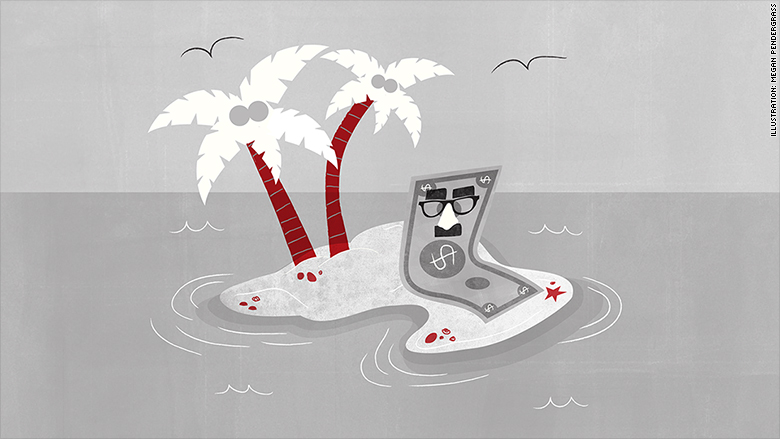
The IRS has been cracking down on tax cheats trying to hide money in offshore accounts. But it's still one of the top tax scams out there.
U.S. tax filers who knowingly cheat on their taxes by parking their money in offshore accounts -- or who naively fall for the pitch of a scammer promoting an offshore tax scheme -- and fail to report those accounts, break the law and may be subject to large fines and penalties, the IRS warned Wednesday.
The IRS said it has carried out thousands of audits of offshore schemes and pursued criminal charges that have resulted in "billions of dollars in criminal fines and restitutions."
"It's a bad bet to hide money and income offshore," said IRS Commissioner John Koskinen. "Taxpayers are best served by coming in voluntarily and getting their taxes and filing requirements in order."
To get people to fess up, the agency launched an Offshore Voluntary Disclosure Program in 2009. The idea behind it: taxpayers who voluntarily report their previously undisclosed offshore accounts may see any penalties reduced and avoid criminal prosecution.
Related: IRS warns of phishing tax scams, fake emails
To date, more than 50,000 people have come forward and the IRS has collected over $7 billion in back taxes and penalties.
In addition, a new set of reporting rules are being phased in under the Foreign Account Tax Compliance Act that will require many foreign financial institutions to report accounts held by U.S. citizens to the IRS. It's similar to the way your bank here might send a 1099-INT form to the agency, reporting the interest income you earned, or your employer sending the IRS your W-2 at tax time.
One of the reasons Americans have one of the highest tax compliance rates in the world is because of this kind of third-party reporting.
